Minister seeks meeting with Earl over Lough Neagh ownership
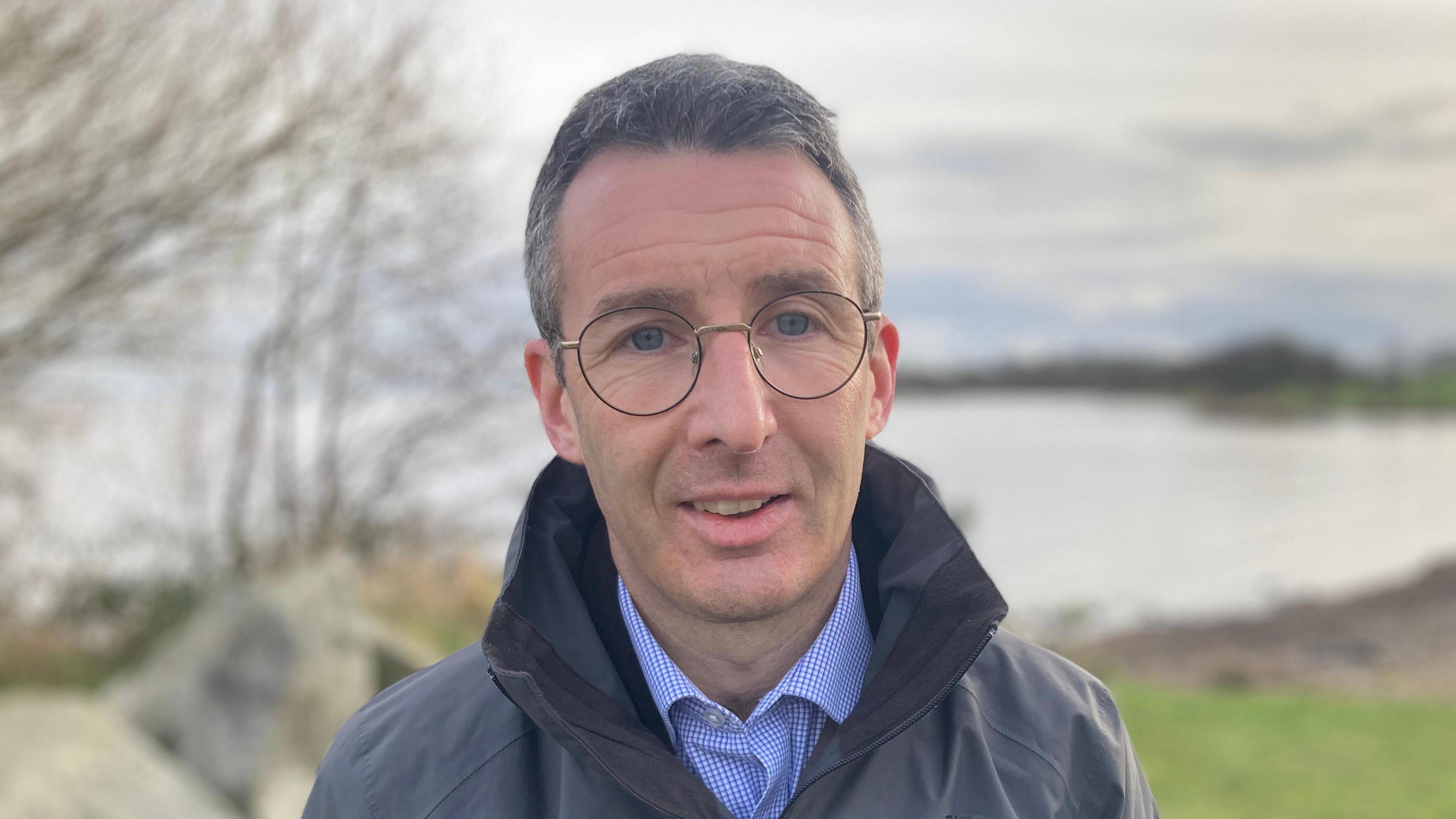
Andrew Muir said he look forward to discussing further with Nicholas Ashley-Cooper about future management and ownership
- Published
The Environment Minister Andrew Muir has said he is seeking a meeting with Earl Shaftesbury following his recent comments about the ownership of Lough Neagh.
Nicholas Ashley-Cooper said he would like to transfer his estate's ownership of Lough Neagh "into a charity or community trust model, with rights of nature included".
However, he said the proposal “may take time”.
It comes as the Lough Neagh Report is due to come before the Stormont Executive again later next week.
Writing on the online platform Substack, the earl said he felt he was "an easy target and a useful excuse for failings in proper governance", external.
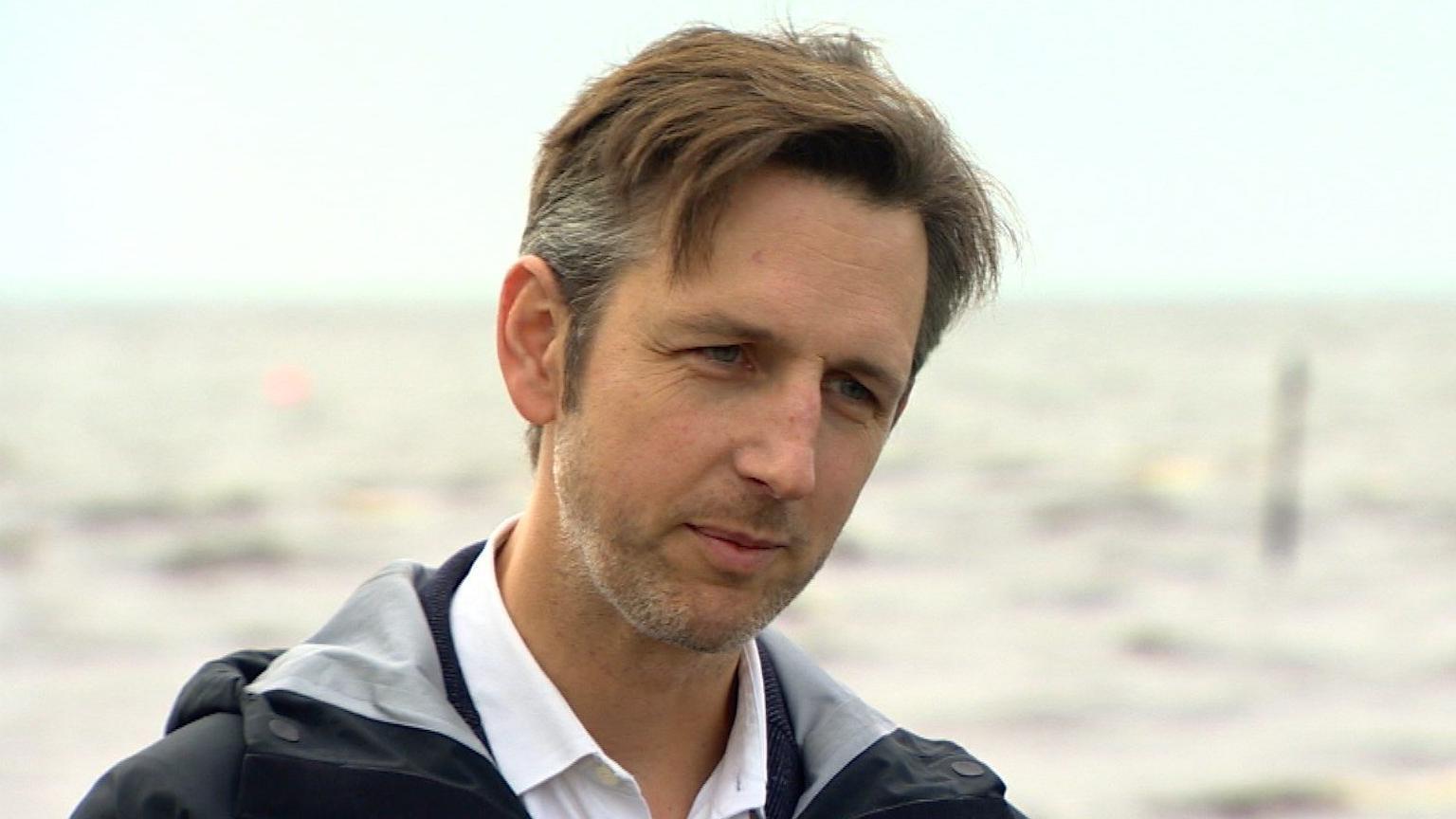
Earl of Shaftesbury Nicolas Ashley-Cooper says any transfer "may take time"
The Shaftesbury Estate owns the bed of Lough Neagh and the earl has previously said he was willing to explore options.
Andrew Muir said on X, formerly Twitter, that "community ownership remains my own preference".
Allow X content?
This article contains content provided by X. We ask for your permission before anything is loaded, as they may be using cookies and other technologies. You may want to read X’s cookie policy, external and privacy policy, external before accepting. To view this content choose ‘accept and continue’.
'No entity who can improve health of lough'
Following the blue-green algal crisis of Summer 2023, there have been calls to transfer the lough to public ownership in Northern Ireland.
But in his article, the earl asks "to whom?".
He added there is "currently no entity that is offering to take it or who can guarantee to improve the environmental health of the lough."
While the Shaftesbury Estate holds the rights to the bed of the lough, five companies have been granted licences to extract sand for which they pay a royalty to the estate.
The earl acknowledged that "unauthorised and therefore completely unregulated and illegal sand extraction" had been taking place for a number of years.
He said the estate had made "repeated attempts" to try to stop it.
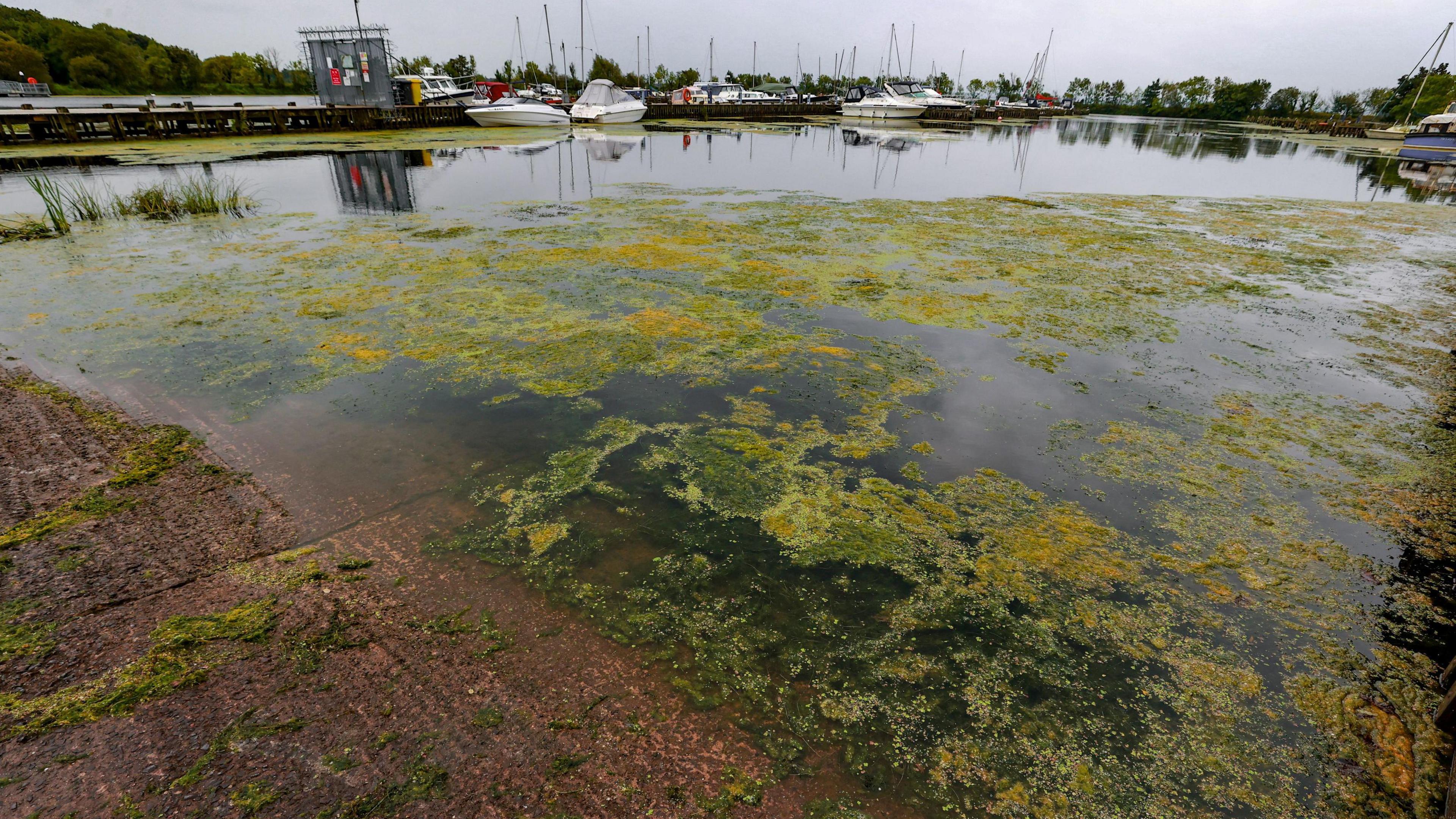
Wildlife and birds suffered after blue-green algal blooms appeared last summer
Nicholas Ashley-Cooper said the Estate's Lough Neagh Ltd. company "has no control" over the water in the lough and the nutrients that go into it.
He added that "collective action" was needed to find solutions to the issues facing the lough.
The earl describes the current situation of Lough Neagh as "deeply upsetting" and added that a charity or community trust model with rights of nature included as possibly "the best way" to support the Lough's long-term future.
Queen's University Belfast (QUB) lecturer Peter Doran of the All-Island Rights of Nature Caucus welcomed the earl’s statement.
"As an advocate of a rights of nature approach and community-ownership, I'm hopeful that other stakeholders, including the executive, will now collaborate on a challenging transition, a just transition," he said.
"The challenge is to re-imagine a novel community-led restoration in which the lough itself and its multitude of life systems are meaningfully included as part of that rights-bearing community."
He added: "The lough is not a mere object for extraction and exploitation but a subject of our shared history.
"The new chapter must be one of collaboration, recognising that our fate as a community is deeply entangled with the fate of nature. We once knew this. It is time to embrace that insight once again."
A QUB academic who specialises in land law and has studied ownership of Lough Neagh in recent years welcomed the announcement by the earl.
Dr Bróna McNeill said it would be a “novel project” for Northern Ireland that would require funding, time and widespread engagement.
She added that it was likely to be the “most appropriate” outcome for Lough Neagh.
What are Rights of Nature?
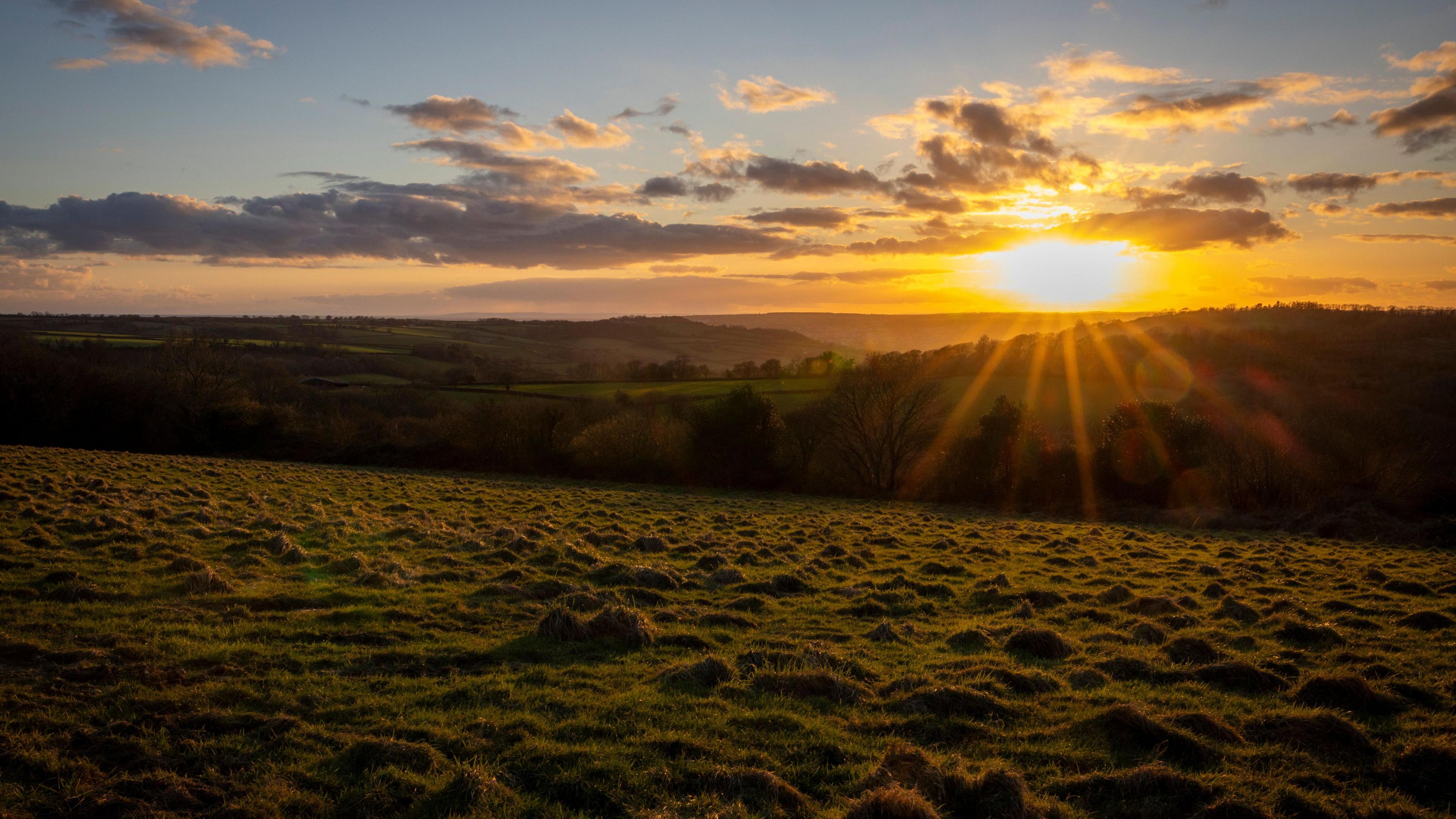
The earl would like the Rights of Nature enshrined in the transfer of ownership
Rights of Nature is a legal theory that seeks to grant rights to elements of nature to protect them from harm and allow them to flourish.
In the Republic of Ireland, the government has been asked to consider a referendum on the issue.
It is understood that the Lough Neagh Report commissioned by the Department of Agriculture, Environment and Rural Affairs does not examine ownership of the lough as part of the immediate solutions required.
The executive discussed the report in its most recent meeting, and minister Andrew Muir has urged ministerial colleagues to approve it at the next meeting.
- Published13 June 2024
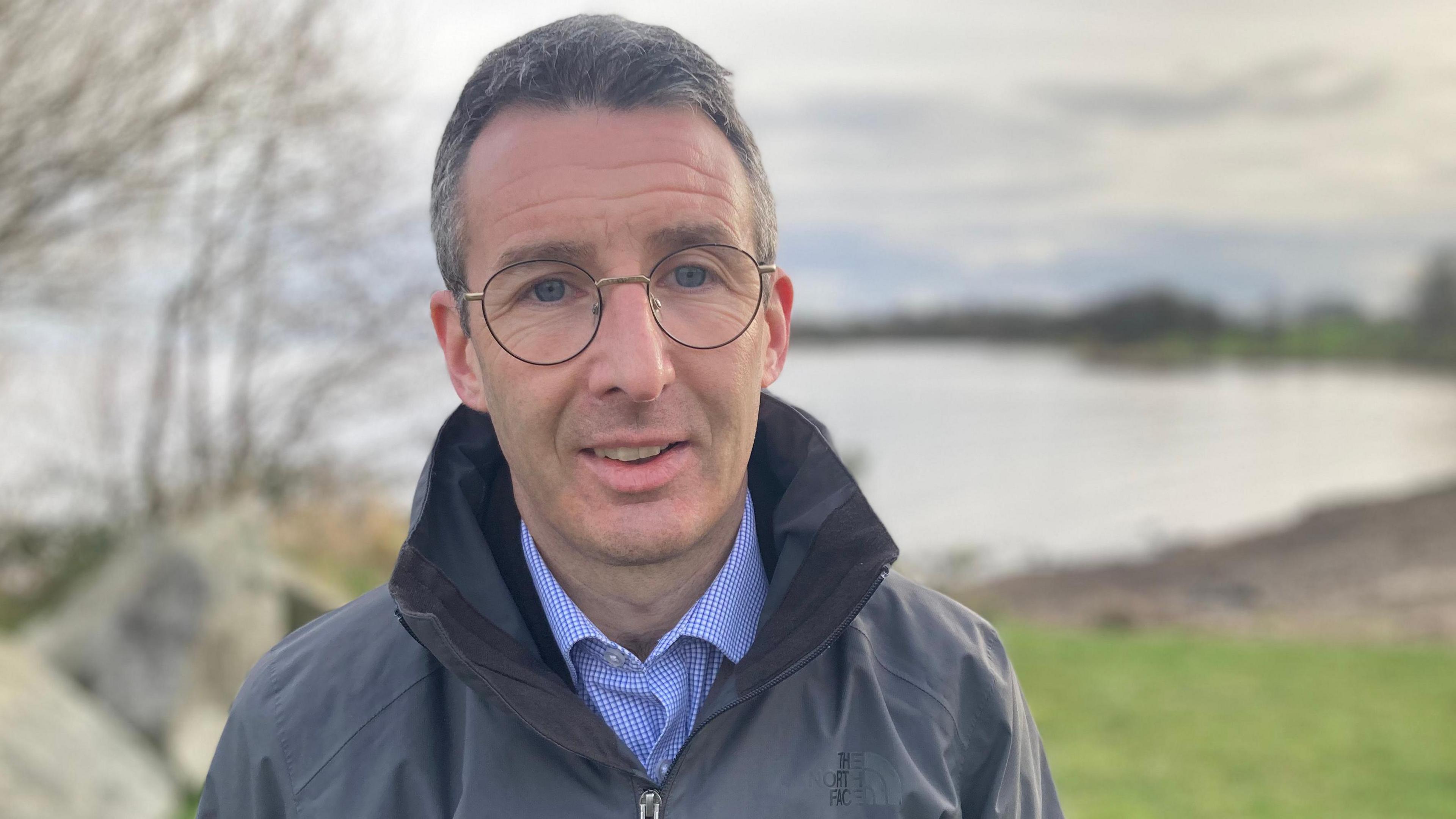
- Published22 February 2024
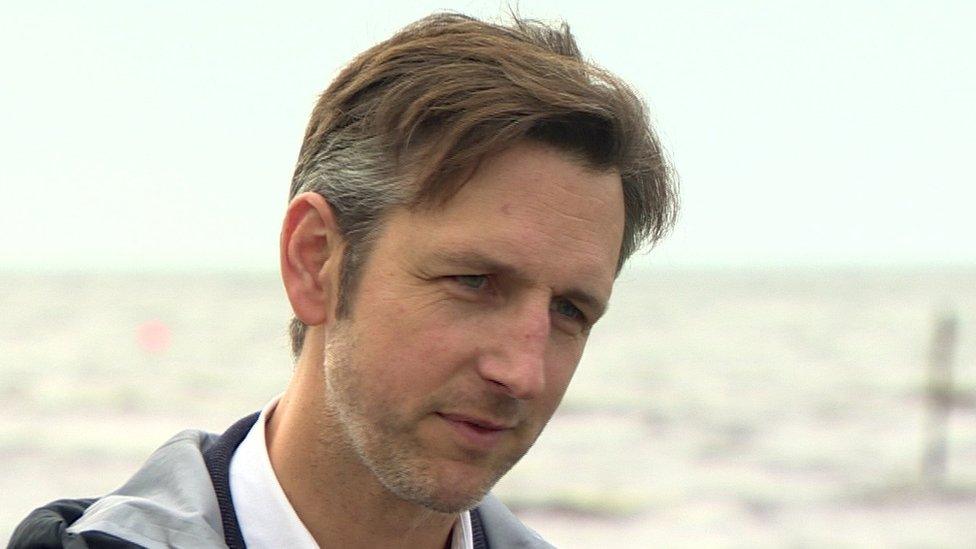
- Published3 October 2023
